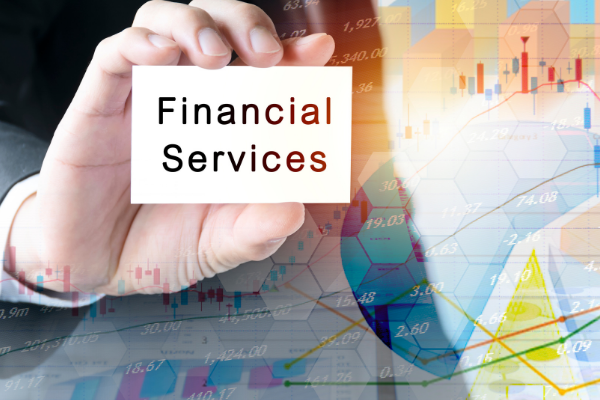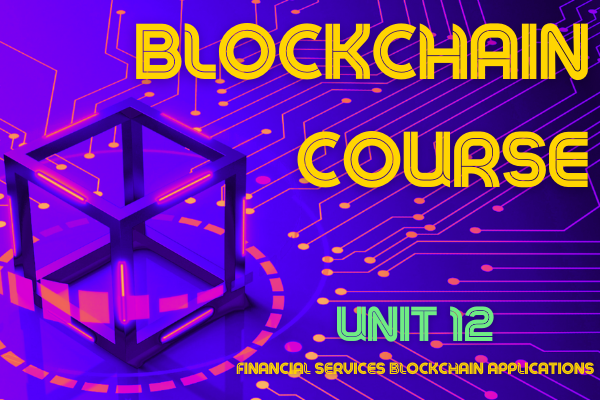Table of Contents
Professionals within the financial services industry have long been analyzing and studying the potential of Blockchain, waiting to see how this emerging technology will change the dynamics of their business.
According to a 2019 survey conducted by IBM, 91% of banks are investing in Blockchain solutions, and 66% of institutions expect to introduce Blockchain into many of their daily operations. These data, seem to show us that Blockchain is about to radically change the financial markets in a way that will benefit both consumers and financial institutions.
It is easy to see how Blockchain’s properties make it ideal for financial applications. Blockchain facilitates secure and easy transactions and builds trust between trading partners. It can even be used to quickly identify individuals through digital IDs.
Banks and other financial institutions are already using Blockchain to optimize their services, reduce fraud and reduce fees for customers. Let’s look at some examples.

International payments
Sending or receiving money to or from other countries, or between two different national currencies, has typically been a process fraught with complexities and high costs.
When electronic payment providers first emerged alongside the e-commerce giants, it was a revolution in the way customers could send money online. Typically, international payments were executed in less than a day, as opposed to days or weeks for traditional bank transfers.
However, the Bank for International Settlements recently concluded that, despite innovations in the services provided to customers to make international payments, the industry was still plagued by technical hurdles and high costs. Despite this, the same entity resolved, bank transfers remained one of the preferred methods for making cross-border transactions.
Financial service providers could take advantage of payment gateways created with Blockchain technology to enable instant transactions 24 hours a day, with low fees regardless of the value of the transaction. In particular, Stablecoins would be a type of currency that, due to their characteristics, would help make the process of transferring value across borders a simple, fast and cheap process.
Digital identities
Despite the fact that financial service providers have been working on preventing it for many years, identity theft remains a growing problem. Not only does identity-based fraud have serious economic consequences, with losses of more than $40 billion in the U.S. in the last two years alone, but it also affects the user experience, as users have to go through lengthy and tedious KYC (Know Your Customer) and AML (Anti-Money Laundering) processes.
Instead, Blockchain-based digital identities, protected through privacy-preserving technologies such as zero-knowledge proofs, serve as a single source of identity and verification data for seamless onboarding of new customers, while meeting the necessary data protection requirements.
Tokenization
A token can be defined in a basic way as a unit of value issued by an organization. Tokenization of securities, such as equity, is perhaps one of the most powerful use cases for Blockchain technology. Stock records are particularly ripe for digitization, and distributed ledgers would allow companies to easily issue stock-based tokens, track shareholders and update stock records without maintaining a capitalization table or having to go to enormous efforts to organize capital.
By streamlining the equity issuance process using Blockchain technology, companies can save time and resources, especially useful for small and medium-sized companies with limited staff.
The broader benefits of tokenization for trading capital and other assets are enormous. For the first time in history, tokenized assets can be transferred anywhere in the world in minutes through Blockchain-based exchanges and marketplaces, a process that would normally take days to resolve, involving multiple intermediaries and complex internal processes.
Instead, Blockchain-enabled exchanges and marketplaces automate the trading, execution and settlement process. As a result, trading is no longer constrained by time zones, paving the way for 24/7 trading with instant settlement times and low fees due to disintermediation.

Trade finance, credit and loans
Loan financing is the most important source of external funding for most companies, however, the actual process for both lender and borrower is lengthy, generating a rather extensive paper trail along the way.
This is further accentuated, if companies have multiple financial providers, as each party would have different databases and companies would have to manage everything individually with each provider.
To solve this, Blockchain technology and smart contracts could be implemented to serve as the underlying infrastructure for trade finance agreements, automating and processing loans according to predefined criteria, and onboarding new trade finance customers through existing digital identities.
The result would be a trade finance ecosystem in which any transaction or paperwork could be completed in a matter of minutes, loan contracts would require less third-party oversight, and smart contracts would legally enforce agreements.
Similar efficiencies could be introduced in consumer lending via Blockchain. Like incorporating a company through digital identities, banks and lenders could easily create risk profiles for retail customers through pre-aggregated information stored on a blockchain, make lending decisions instantly, decrease loan defaults and improve the customer experience.
A very recent example of how the traditional financial system is progressively assuming the Blockchain and more specifically cryptocurrencies, is the case of BBVA that by January 2021 will launch a service for buying and selling digital assets.
In an article published on the bank’s website announcing the launch of this service, the head of Strategy at Client Solutions, Alicia Pertusa, spoke of the great potential of this technology in the sector: “Digital assets have great potential to transform the way in which value and information is exchanged through Blockchain technology. Financial institutions, in collaboration with supervisors, can play a relevant role in integrating digital assets into today’s markets and infrastructures.”
The future of Blockchain and finance
The solutions that Blockchain brings to the financial sector are many, and adoption by financial service providers is only increasing. There are a multitude of them already experimenting with Blockchain, developing Blockchain-based MVPs (minimum viable product), running pilots and leveraging external Blockchain solutions.
However, for the Blockchain era change to happen in this sector, there needs to be major changes in the current regulatory frameworks fully accepting and recognizing this technology and its products, which in turn will enable business decision makers to integrate Blockchain into their core processes.
In the future, financial service providers will most likely need to pivot their business models to include decentralized assets and value transfer, which will make autonomy, low fees, digital identities and instant transactions the norm.




